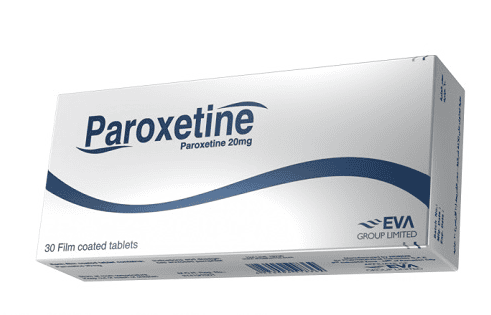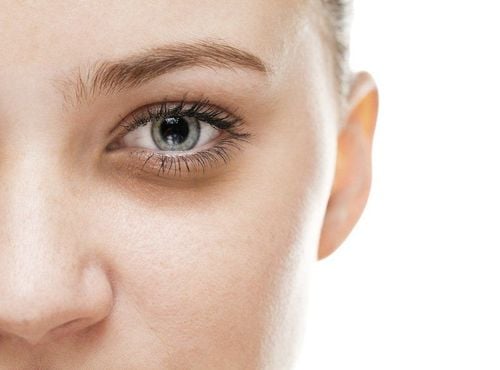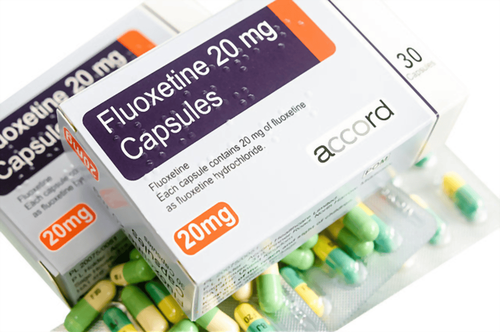This is an automatically translated article.
Anxiety is a condition that most people experience in life. People with anxiety should practice relaxation measures, seek help from loved ones or psychologists to improve their mental and physical health.1. Effects of Anxiety on the Body
Anxiety is a part of life mood, it's encountered in almost everyone. Some specific situations such as public speaking or job interviews. In the short term, anxiety can cause increased breathing and heart rate, increasing blood flow to the brain. Excessive stress can cause lightheadedness and nausea. Chronic anxiety and chronic stress can wreak havoc on physical and mental health.
A stressful life can increase your risk of developing an anxiety disorder, with symptoms that can appear immediately or after years. Illnesses and substance use disorders can also lead to anxiety disorders.
2. 12 effects of anxiety on the body
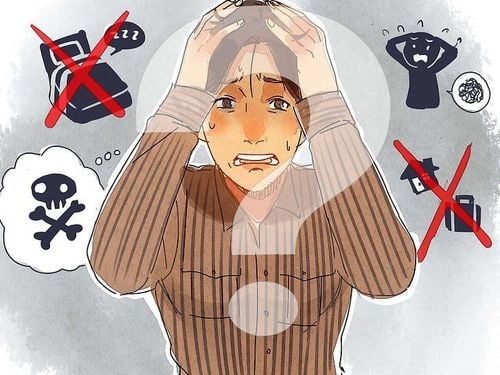
Rối loạn lo âu lan tỏa (GAD)
2.1. Generalized Anxiety Disorder (GAD) Generalized anxiety disorder (GAD) is a state of anxiety that lasts for 6 months or more. In mild cases, chores and physical activities can still be completed. However, for people with severe GAD, it can have a profound effect on a person's quality of life.
SEE ALSO: Can generalized anxiety disorder be completely cured?
2.2. Social Anxiety Disorder Social anxiety disorder is fear of certain social situations, fear of being judged or humiliated by others. The illness can make people feel ashamed and lonely. The typical age of onset is around 13. More than a third of people with social anxiety disorder live with the disorder for about 10 years before seeking help.
2.3. Post-Traumatic Stress Disorder (PTSD) Post-traumatic stress disorder (PTSD) often occurs after witnessing or experiencing traumatic events. Symptoms can occur immediately or after many years. Common causes are war, natural disasters or attacks. Episodes of PTSD can happen without warning.
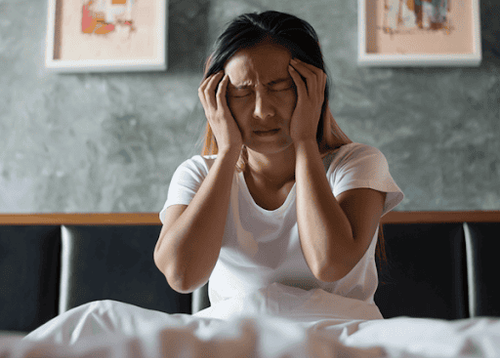
Triệu chứng bệnh rối loạn căng thẳng sau sang chấn có thể xảy ra ngay hoặc sau nhiều năm
2.4. Obsessive-compulsive disorder (OCD) People with obsessive-compulsive disorder (OCD) often perform repetitive actions, are prone to thoughts and actions that hurt themselves. Common compulsions include the habit of washing hands, counting, or checking something. Common phobias include cleanliness anxiety, aggressive attitudes, and the need to be well-balanced.
2.5. Phobias These include claustrophobia, acrophobia, and many other phobias. You often have strong urges to avoid scary objects or situations.
2.6. Panic Disorder Panic disorder causes panic attacks, anxiety, terror, feelings of wanting to smash. Physical symptoms include heart palpitations, chest pain, and shortness of breath. Panic disorder can happen at any time. You may also have panic disorder associated with other forms of anxiety.

Xuất hiện cơn hoảng loạn có thể do rối loạn hoảng sợ gây ra
2.7. Central nervous system Prolonged episodes of anxiety and panic can cause the brain to release chronic stress hormones, increasing the frequency of symptoms such as headaches, dizziness, and depression. When feeling anxious and stressed, the brain releases many hormones and chemicals like adrenaline and cortisol to manage stress.
Prolonged stress causes the release of harmful hormones even more, affecting health. For example, a prolonged increase in cortisol secretion can cause weight gain.
2.8. Cardiovascular system Anxiety disorders can cause tachycardia, palpitations, and chest pain. You may also be at risk for high blood pressure and cardiovascular disease. If you already have cardiovascular disease, an anxiety disorder may increase your risk of coronary heart disease.
2.9. Excretory and Digestive System Anxiety also affects the excretory and digestive systems. Specifically, it causes abdominal pain, nausea, diarrhea, loss of appetite and other digestive problems. Anxiety may increase the risk of irritable bowel syndrome (IBS) following a bowel infection. IBS can cause vomiting, diarrhea, or constipation.
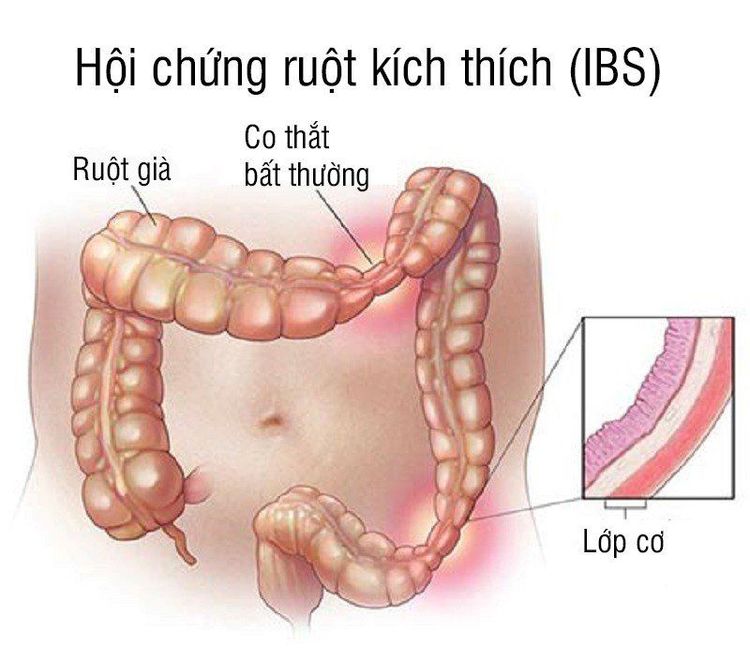
Tâm trạng lo lắng có thể làm tăng nguy cơ mắc hội chứng ruột kích thích
2.10. Immune System Anxiety can trigger the immune system to release large amounts of chemicals and hormones like adrenaline to relieve anxiety. They work to increase heart rate and breathing rate to help increase oxygen to the brain. With occasional stress, the body will function normally again once the stress has passed.
In the case of prolonged stress, chemicals and hormones continue to be released after the stress is over. This leads to a weakened immune system, leaving you vulnerable to frequent viral infections and illnesses. The effectiveness of the vaccine is also less than that of the general population.
2.11. Respiratory system Anxiety causes rapid and shallow breathing. Anxiety also aggravates chronic obstructive pulmonary disease (COPD) and asthma, causing these people to be hospitalized more often.
2.12. Other Effects Anxiety disorders also cause a variety of other symptoms, including:
Headaches Muscle Tension Insomnia Depression Restrictions on social contact People with anxiety disorders also frequently recall traumatic experiences, become irritable, startling, withdrawing. Other possible symptoms include nightmares, insomnia, and sadness.
Anxiety disorders greatly affect the psychology as well as the quality of life of patients. Therefore, if the level of anxiety disorder becomes increasingly out of control, the patient should soon go to medical facilities for examination and treatment.
With many years of experience in the examination and treatment of neuropsychiatric diseases, now Vinmec International General Hospital has become one of the major health care centers, capable of examining, screening and treatment of many diseases in depth. Therefore, if anxiety disorders greatly affect your life, you can go to Vinmec International General Hospital to visit and receive support and advice from doctors and psychologists.
Please dial HOTLINE for more information or register for an appointment HERE. Download MyVinmec app to make appointments faster and to manage your bookings easily.
Reference source: healthline.com





